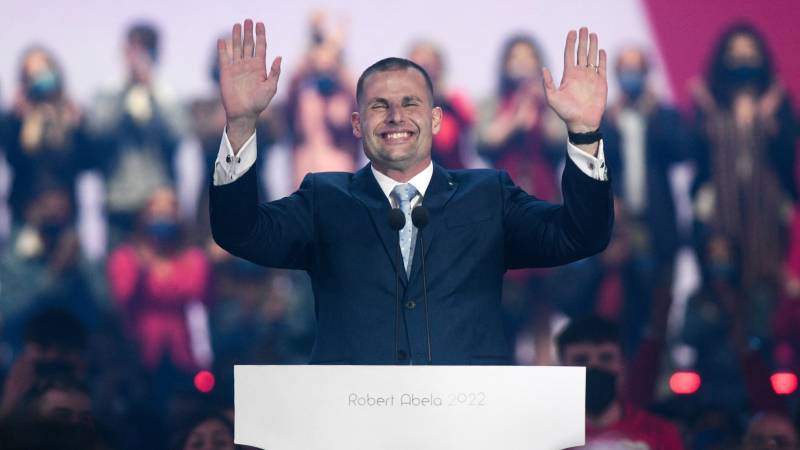Malta's PM sworn in after landslide election win

Stay tuned with 24 News HD Android App

Malta's Prime Minister Robert Abela was sworn in Monday following a landslide victory in weekend elections that delivered his Labour party a third term in government.
Labour won 55.11 percent of the vote, final results showed -- a bigger win than in 2017 or 2013 despite low turnout and the legacy of scandal over the murder of journalist Daphne Caruana Galizia.
It was the first electoral test for Abela, a 44-year-old lawyer, since he took the helm of the tiny Mediterranean island nation in January 2020 following a Labour party vote.
His predecessor Joseph Muscat was forced to quit after being accused of shielding his allies from the investigation into Caruana Galizia's 2017 assassination in a car bomb.
She had accused top members of Muscat's administration of corruption. A public inquiry last year accused the state of creating a "climate of impunity" in which she was killed.
In Saturday's vote, Labour secured a majority of almost 40,000 votes over its Nationalist Party rivals -- a huge margin in the tiny EU state which has just 355,000 registered voters.
Vincent Marmara, a polling expert who lectures at the University of Malta, said it was "historic".
"Considering that it was a lower turnout this year, the difference of 39,474 is a massive victory," he told AFP.
The Electoral Commission confirmed turnout was 85.6 percent, the lowest in a Maltese general election since 1955 -- and the first time it has dropped below 90 percent since 1966.
The campaign was relatively low-key, limited by coronavirus restrictions, dogged by worries about the war in Ukraine -- and hampered by an air of inevitability, as all opinion polls pointed to a Labour landslide.
Abela had campaigned on his handling of the coronavirus pandemic and the strong economy during the last nine years of Labour government.
The Nationalist Party pushed the issue of corruption, from Caruana Galizia's murder to the government subsidy cheques sent out just before polling day, but has struggled with internal divisions.
"They made no inroads," Marmara said.
Electoral Commission figures showed Labour secured 55.11 percent of the vote, up from 55.04 percent in 2017, easily beating the Nationalist Party's 41.74 percent.
